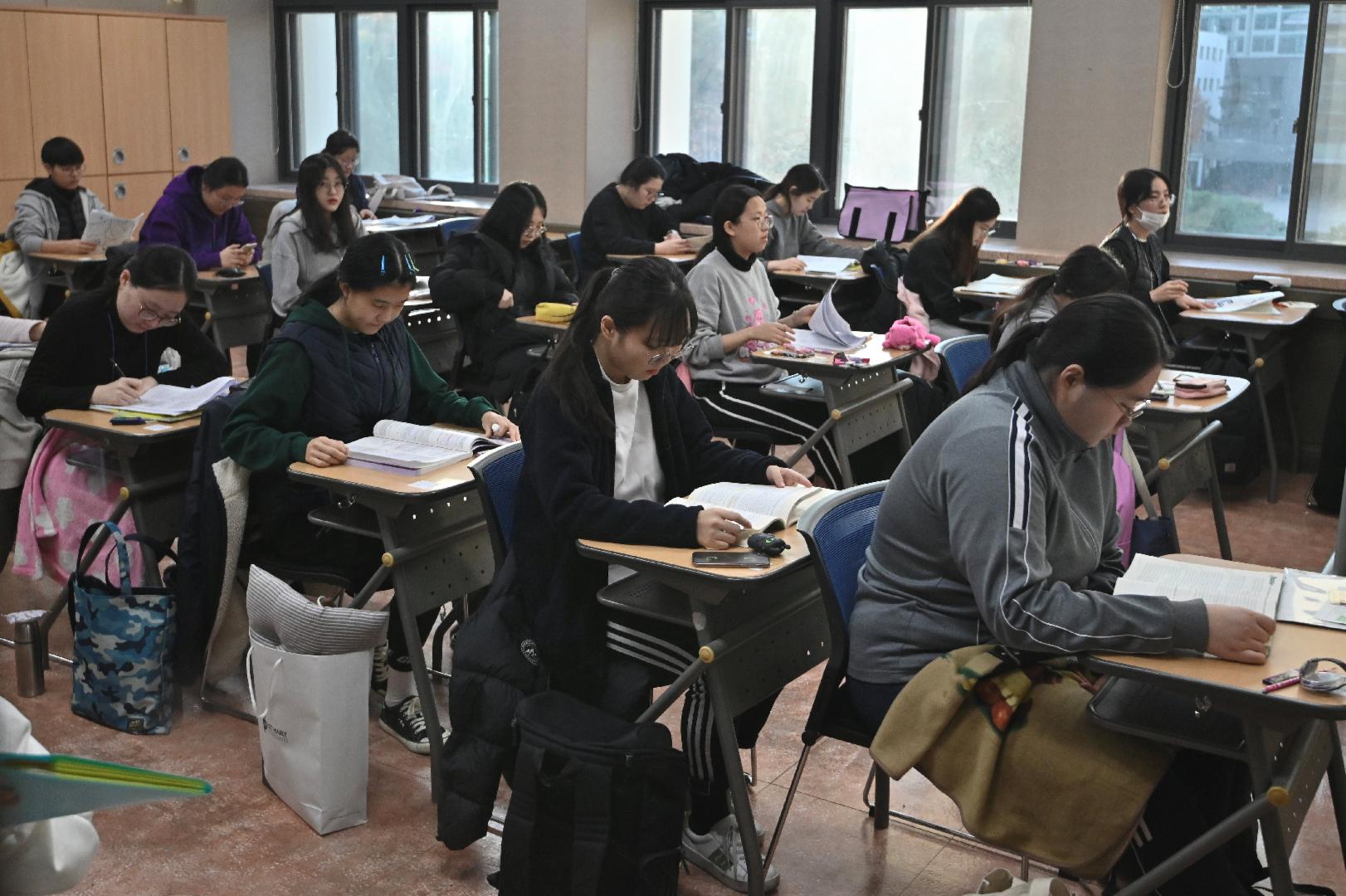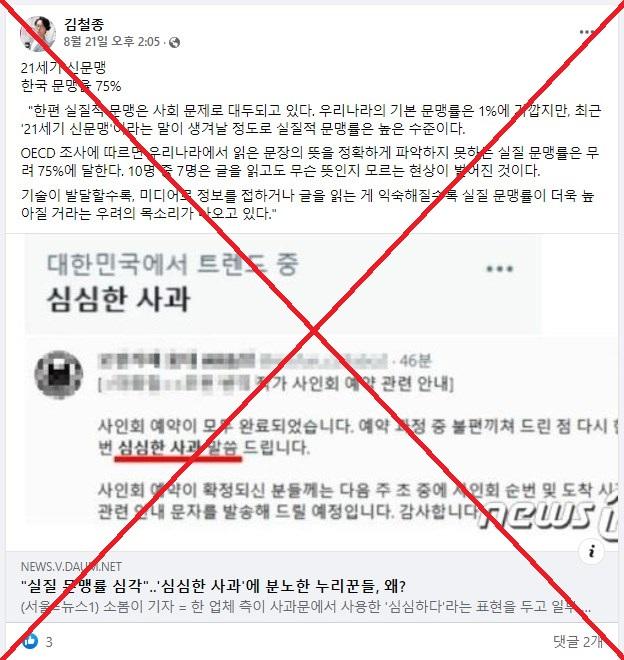
South Korean posts mislead with 'effective illiteracy' claim
- This article is more than three years old.
- Published on September 5, 2022 at 04:03
- Updated on September 5, 2022 at 04:12
- 3 min read
- By SHIM Kyu-Seok, AFP South Korea
"Illiteracy in the 21st century. South Korea's illiteracy rate at 75%," reads a Facebook post shared on August 21.
The post links to a report from News1, a South Korean news organisation, about South Korean Twitter users apparently misinterpreting a word used by a publishing agency when it apologised for an error in a book signing event.
Citing the incident, the report states: "According to an OECD study, up to 75 percent of South Koreans are effectively illiterate, or unable to properly comprehend the meaning of what they read."
"This is a phenomenon where seven in 10 people read something but fail to understand what it means," the report added.

Similar claims were shared on Facebook here, here and here; and in local news reports here and here.
These posts are misleading.
South Korea study
The figure cited in the posts -- 75 percent -- corresponds to the sum of two numbers in a 2001 study by the state-run Korea Educational Development Institute.
The study compared adult literacy in South Korea with other OECD countries; it was not released by the OECD as the posts claim.
It found that for an indicator called "document literacy", 38 percent of South Korean adults scored in the level 1 range, while 37.8 percent scored in the level 2 range.
These figures roughly add up to 75 percent.
But this finding does not mean seven in ten South Koreans cannot comprehend what they read, according to experts.
Hwang Hye-jin, a professor of Korean-language education at Konkuk University, told AFP that individuals who scored in the level 1 or 2 range are "capable of understanding what they read".
Tasks used to test for level 1 and 2 proficiency tests include vocabulary, meaning of sentences and simple inferences, Hwang explained.
Tasks from level 3 onwards involve denser texts that require a higher ability for inferences, she added.
"The term 'effective illiteracy' mentioned in the claim is not a concept used academically, as it holds a subjective and normative connotation," Hwang said.
Some international organisations, such as UNESCO, use the term "functional literacy," defining it as a person's capacity to "use reading, writing and calculation for his or her own and the community’s development."
Hwang explained the term was also used in linguistics, but that it was "different from 'effective illiteracy'" in that "functional literacy, alongside cultural and critical literacy, is one of several forms used to define literacy."
"One can assess degrees of literacy through these different categories, but defining the lack of literacy as 'effective illiteracy' is inaccurate," she added.
Shin Ji-young, a linguistics professor at Korea University, separately told AFP: "What the study showed was that South Korean adults at the time scored particularly low in regards to document literacy, which applies to finding and using information written on official documents, graphs or charts."
But on the study's other indicators -- comprehending prose and numerical data -- South Koreans scored on par with other OECD countries, she added.
Recent literacy figures
Hwang said the posts citing an old study is a "serious error".
"There are newer studies that have been conducted through more scientifically rigorous methods, which have assessed literacy through a diverse array of texts more closely aligned to those we read daily," she said.
Contacted by AFP, a spokesperson for the Korea Educational Development Institute shared the results of more recent assessments measuring literacy in the country.
A 2017 study conducted by the National Institute for Lifelong Education found 7.2 percent and 5.1 percent of South Koreans scored at levels 1 and 2, respectively.
A repeat study by the same institute published in 2020 similarly found 76.0 percent of adults scored at level 4 and above.
Copyright © AFP 2017-2026. Any commercial use of this content requires a subscription. Click here to find out more.
Is there content that you would like AFP to fact-check? Get in touch.
Contact us
